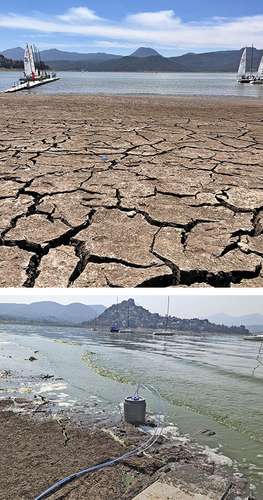In a conference organized by the National School of Earth Sciences, Dr. Oscar Gerardo Nieto emphasized the importance of studying continental aquatic ecosystems in relation to climate change. He expressed his concern about the lack of academic research teams focusing on these ecosystems, especially in regions like Mexico where research is limited.
Gerardo Nieto highlighted that hydroecosystems play a significant role in emitting greenhouse gases that contribute to climate change. Despite covering only 3.7 percent of the Earth’s surface, these ecosystems are responsible for a significant portion of methane and carbon dioxide emissions. He also pointed out that aquatic ecosystems not only release greenhouse gases but also have the potential to capture and store large amounts of carbon.
The postdoctoral researcher mentioned the challenges involved in studying these environments, such as limited scientific studies, lack of measurements, and the focus on boreal and temperate ecosystems rather than tropical or subtropical locations. He used the case of lakes in Siberia as an example, which are fed by thawing permafrost and release significant amounts of carbon stored for thousands of years.
Gerardo Nieto stressed the necessity of including hydroecosystems that are not typically studied in global inventories of greenhouse gas emissions and monitoring these emissions to assess their sensitivity to climate change. Monitoring greenhouse gas emissions from hydroecosystems can help understand their potential impacts on local and regional environments, inform decisions to address climate change, and protect biodiversity and ecosystem services. The researcher emphasized the need for more scientific research teams in Mexico dedicated to studying aquatic biomes in relation to greenhouse gas emissions.
In conclusion, Gerardo Nieto’s call for more academic research teams studying continental aquatic ecosystems highlights a critical gap in our understanding of how these environments contribute to climate change. As we continue to grapple with this global crisis, it is essential that we prioritize research into these understudied regions to inform effective policies and protect biodiversity and ecosystem services for future generations.



